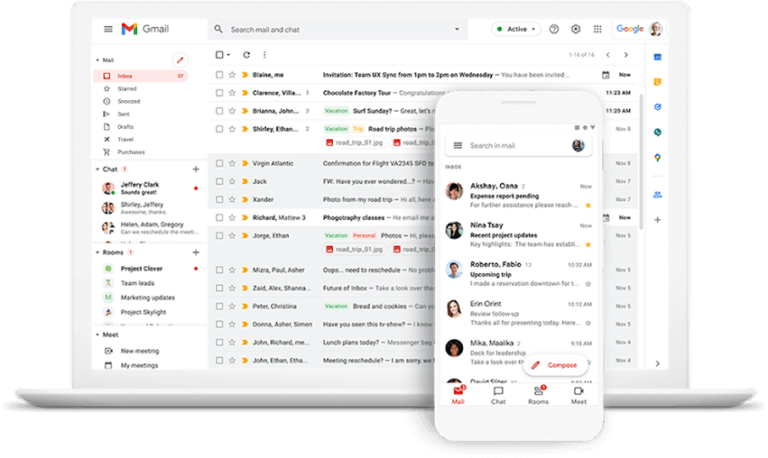Beginning with google apps for business email, this service is designed to streamline communication and enhance collaboration for businesses of all sizes. It provides a suite of powerful tools that not only simplify email management but also integrate seamlessly with various applications, making it an essential part of any modern business’s digital toolkit.
This platform offers features such as custom domain email addresses, ample storage, and robust security measures. With user-friendly interfaces and reliable support, businesses can enjoy a professional email experience that reflects their brand identity while improving productivity.
In today’s fast-paced world, the importance of effective communication cannot be overstated. Whether in professional or personal settings, the ability to convey thoughts clearly and concisely is vital. This article delves into the nuances of communication, exploring its many facets, and offering insights into how to improve this essential skill.Effective communication goes beyond simply exchanging words. It involves understanding the emotional and psychological contexts of the conversation.
The tone, body language, and even the environment in which a discussion takes place can significantly impact how messages are received and interpreted. For instance, a cheerful tone can brighten a message, while a flat delivery may lead to misunderstandings, regardless of the content. One of the foundational elements of communication is active listening. This skill is often overlooked but is crucial for meaningful exchanges.
Active listening involves fully concentrating, understanding, responding, and then remembering what is being said. It requires the listener to engage with the speaker, asking clarifying questions and providing feedback. This not only helps in grasping the content better but also shows the speaker that their thoughts are valued, fostering a more open and honest dialogue.In the workplace, effective communication can lead to improved teamwork and productivity.
Teams that communicate well are more likely to collaborate efficiently, resolve conflicts, and innovate. To cultivate a culture of effective communication, organizations can implement practices such as regular check-ins, open-door policies, and feedback sessions. Encouraging team members to share their thoughts without fear of judgment creates an environment where everyone feels empowered to contribute.Moreover, the rise of remote work has introduced new communication challenges.
Teams that rely on digital platforms for collaboration must adapt their communication strategies to suit virtual environments. This includes being mindful of the nuances that can be lost in written communication, such as tone and context. Video calls can help bridge this gap, as they allow for visual cues and a more personal interaction. However, it’s still essential to be clear and precise in messaging to avoid misinterpretations.Another crucial aspect of communication is non-verbal cues.
Body language, facial expressions, and even eye contact play a significant role in how messages are perceived. For example, crossing arms may be interpreted as defensiveness, while maintaining eye contact can show engagement and sincerity. Being aware of one’s own non-verbal signals, as well as those of others, can enhance understanding and connection between individuals.Emotional intelligence (EI) also plays a significant role in effective communication.
EI refers to the ability to recognize, understand, and manage our own emotions as well as those of others. Individuals with high emotional intelligence are often better communicators because they can navigate complex social situations with ease. They are more empathetic, allowing them to respond appropriately to the feelings of others and fostering a supportive atmosphere.Conflict resolution is another critical area where effective communication is essential.
Conflicts are inevitable in any setting, but how they are handled can make all the difference. Approaching conflicts with a willingness to listen and understand different perspectives can lead to constructive solutions. Techniques such as “I” statements can help in expressing feelings without placing blame, thereby reducing defensiveness and promoting a more open dialogue.Furthermore, the role of feedback in communication cannot be ignored.
Giving and receiving feedback is a powerful tool for growth and improvement. Constructive feedback, when delivered effectively, can motivate individuals and teams to enhance their performance. It is important to focus on specific behaviors rather than personal attributes, which can lead to a more productive discussion. Additionally, being open to receiving feedback is equally important. It shows a willingness to learn and grow, which can strengthen relationships in both personal and professional contexts.In today’s digital age, communication extends beyond face-to-face interactions.
Social media, emails, and messaging platforms have transformed how we connect with others. While these tools can facilitate communication, they also come with their own set of challenges. The lack of physical presence can lead to misunderstandings, and the rapid pace of online interactions may result in hasty decisions or remarks. Therefore, it is vital to approach digital communication with the same level of thoughtfulness as one would in person.For those looking to improve their communication skills, there are several strategies to consider.
First, practice mindfulness in conversations. Being present and engaged can help in truly understanding the other person’s viewpoint. Second, seek out opportunities for public speaking or group discussions. These experiences can boost confidence and enhance verbal communication skills. Lastly, don’t hesitate to seek feedback on your communication style from trusted friends or colleagues.
Their insights can provide valuable perspectives that may highlight areas for improvement.In conclusion, effective communication is an indispensable skill that influences various aspects of our lives. By embracing active listening, being aware of non-verbal cues, and nurturing emotional intelligence, individuals can enhance their ability to connect with others. Furthermore, adapting communication strategies to suit different environments, whether in-person or digital, is essential in today’s interconnected world.
As we navigate our personal and professional lives, prioritizing effective communication can lead to deeper relationships, increased collaboration, and a more harmonious environment overall.
FAQ
What is google apps for business email?
It is a suite of productivity tools by Google that includes professional email, calendars, and other collaboration tools designed for businesses.
Can I use my own domain name with google apps for business email?
Yes, you can set up a custom domain name for your business email to enhance your brand’s professionalism.
What are the storage limits for email accounts?
Each user typically receives 30 GB of storage, which can be expanded with different plans.
Is google apps for business email secure?
Yes, it includes advanced security features such as two-step verification and encryption to protect your data.
How easy is it to migrate from another email service?
Google provides various tools and support to facilitate easy migration from other email services.












